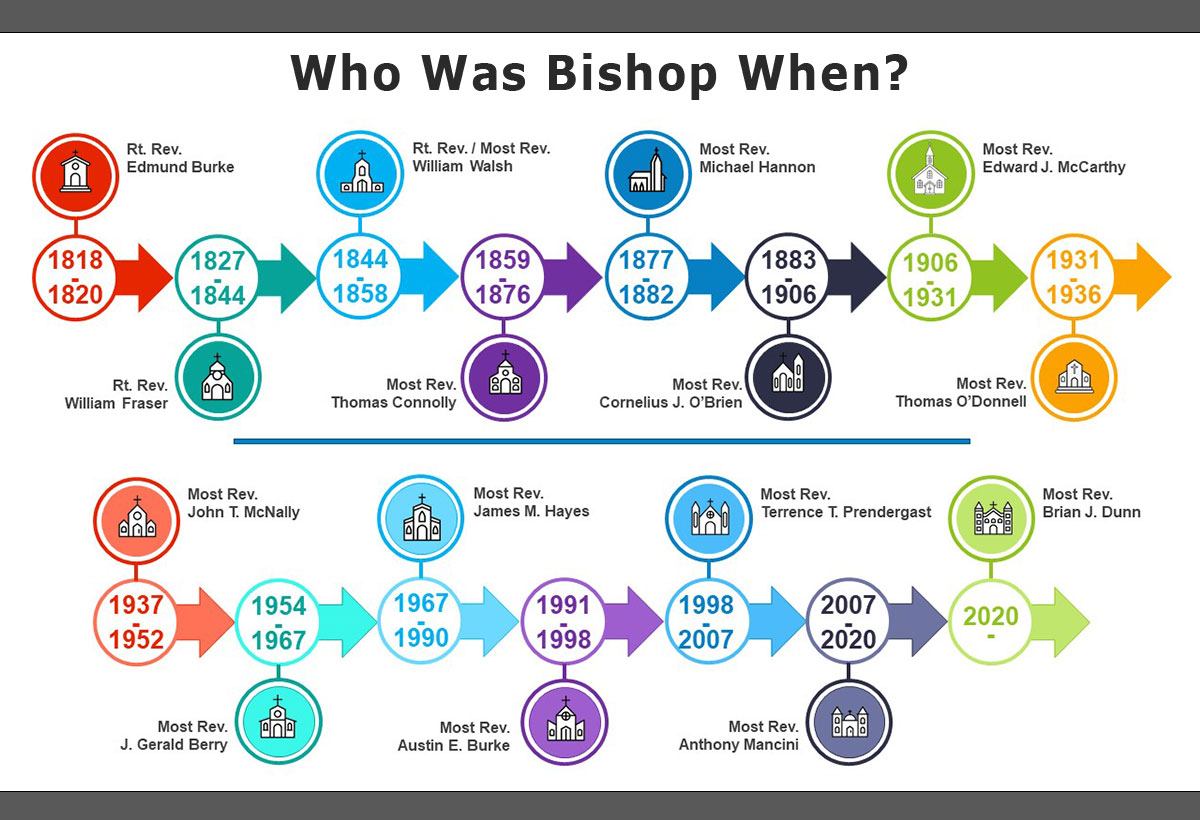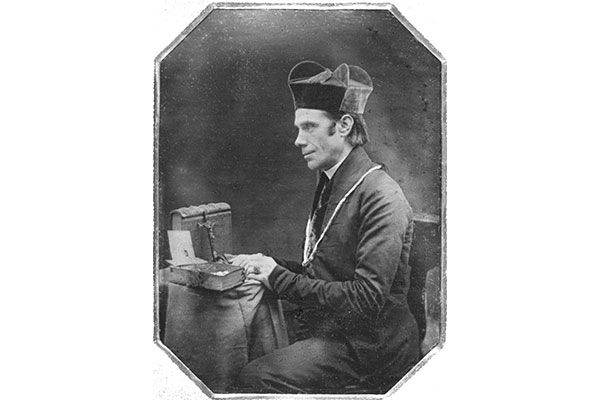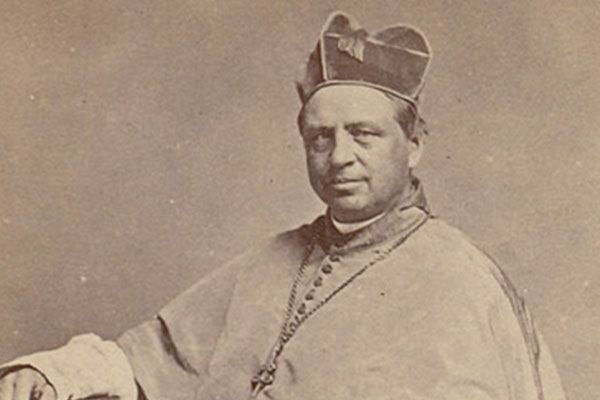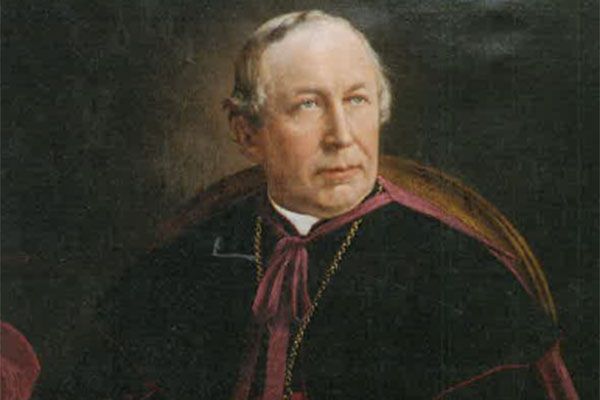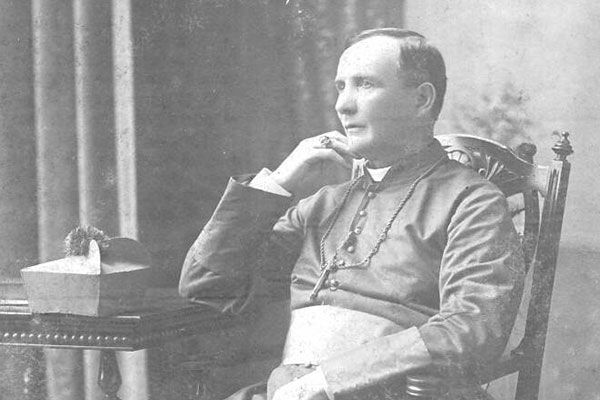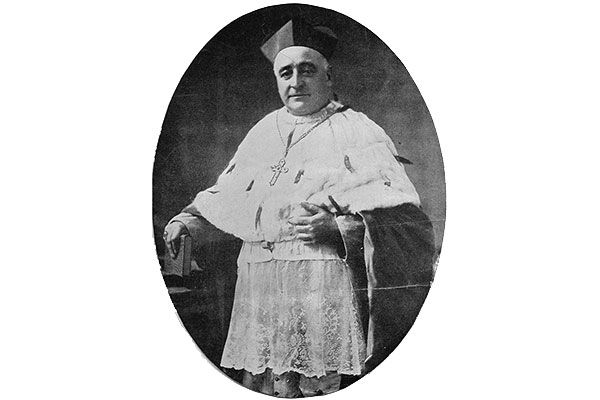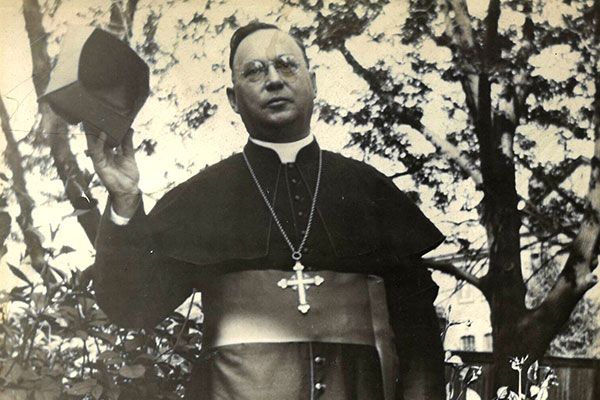Most Rev. Thomas O'Donnell
8th Archbishop of Halifax
1931-1936
Thomas O’Donnell was born in Tralee, County Kerry, Ireland on August 16, 1874. At the age of eight years old, he moved with his family from Ireland, and they settled in Toronto. He received his early education from the Irish Christian Brothers and later studied at St. Michael’s College in Toronto graduating with distinction in 1894. Upon graduating from St. Michael’s, he moved to Montreal and studied for the Priesthood at the Grand Seminary of Montreal. Fr. Thomas O’Donnell was ordained to the Priesthood two days before Christmas Day in 1899. He held his first Mass the next day at the Grand Seminary, where he celebrated the Mass in French. He celebrated the midnight Christmas Day Mass at St. Patrick’s Cathedral the following day as well.
He began his pastoral work in 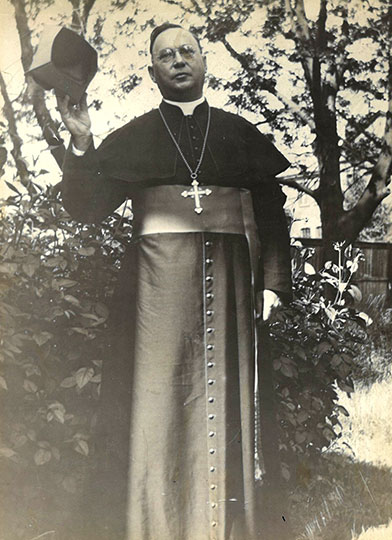 his adopted hometown of Toronto serving in various parishes. When he became Pastor of St. Anne’s Parish in Toronto his financial brilliance saw the Parish erase all their debts in just 15 years. He also built a new church for the parish which gained him respect from officials in the Vatican. In 1916 Fr. O’Donnell was appointed as President of the Catholic Church Extension Society of Canada. The Society raised funds to build churches in financially struggling parishes. O'Donnell enthusiastically led the effort, securing funding for 90 churches over his seven-year tenure. Many of the churches were built in isolated areas of western Canada. During Fr. O’Donnell’s time as President, he also served as Editor for the renowned newspaper the Catholic Register, where he developed a conservative reputation. He always had a passion for journalism. Later in his life he saved the Halifax-based Catholic newspaper The Catholic Gazette from bankruptcy by forming the paper into a limited company and selling 1,000 shares valued at $10 each.
his adopted hometown of Toronto serving in various parishes. When he became Pastor of St. Anne’s Parish in Toronto his financial brilliance saw the Parish erase all their debts in just 15 years. He also built a new church for the parish which gained him respect from officials in the Vatican. In 1916 Fr. O’Donnell was appointed as President of the Catholic Church Extension Society of Canada. The Society raised funds to build churches in financially struggling parishes. O'Donnell enthusiastically led the effort, securing funding for 90 churches over his seven-year tenure. Many of the churches were built in isolated areas of western Canada. During Fr. O’Donnell’s time as President, he also served as Editor for the renowned newspaper the Catholic Register, where he developed a conservative reputation. He always had a passion for journalism. Later in his life he saved the Halifax-based Catholic newspaper The Catholic Gazette from bankruptcy by forming the paper into a limited company and selling 1,000 shares valued at $10 each.
Fr. Thomas O’Donnell was appointed as Bishop of the Diocese of Victoria, B.C. in December of 1923. On Valentine's Day 1924, Fr. O’Donnell was consecrated as Bishop of the Diocese of Victoria. He was consecrated by the Apostolic Delegate to Canada and Newfoundland, Archbishop Pietro Di Maria. He was so beloved in the Archdiocese of Toronto that he was gifted $30,000 dollars at his consecration ceremony by his parishioners. He used the majority of the funds he was gifted to help destitute priests and failing parishes in his new Diocese of Victoria. Bishop O’Donnell faithfully served as Bishop of Victoria for 5 years.
In 1929 Bishop O’Donnell was appointed as the Coadjutor Bishop of Halifax due to the failing health of Archbishop Edward Joseph McCarthy. He was also given the title of Titular Bishop of Methymna. This position was short lived however as two years later Archbishop McCarthy passed away and Bishop O’Donnell succeeded him as the 8th Archbishop of Halifax.
In his position as Coadjutor Bishop, Archbishop McCarthy tasked him with heading the Diocesan Chancery Office. This appointment was in part due to the bishop’s financial wisdom. The bishop’s financial prowess was put to the test early on in his episcopate as he was tasked with auditing the Archdiocese’s finances. The conclusion from his investigation showed that St. Mary’s University had financial irregularities that needed to be handled. These irregularities included expenditures that O’Donnell felt were unnecessary, such as up to $40,000 dollars in land acquisitions. The Irish Christian Brothers, who were serving as administrators of the university also owed a debt of $37,000 dollars to the Archdiocese. His Grace reminded the order of this debt and at one point threatened to withhold the funds granted by the Power Estate to the university. A complaint was sent by the Bishop to the Vatican as he believed the order was misappropriating funds to cover their debts. On February 9, 1931, now Archbishop, O’Donnell was granted a private audience with Pope Pius XI at the Vatican on the matter of the Irish Christian Brothers. The meeting lasted 35 minutes and O’Donnell left the meeting believing he made a compelling case to the Holy Father. To O’Donnell’s surprise, however, he lost the case as the Vatican officials ruled in favour of the Irish Christian Brothers. This decision caused the Archdiocese to completely disassociate from the University and the order, until the Jesuits took over the administration of the university in 1937.
His Grace was also enraged when the Order of Irish Christian Brothers planned a fraternity dance at St. Mary’s University. He wrote to St. Mary’s President stating, “This is absolutely forbidden, we as Catholics cannot be associated with the dances of the times, especially an institution with seminarians studying for the Priesthood.”
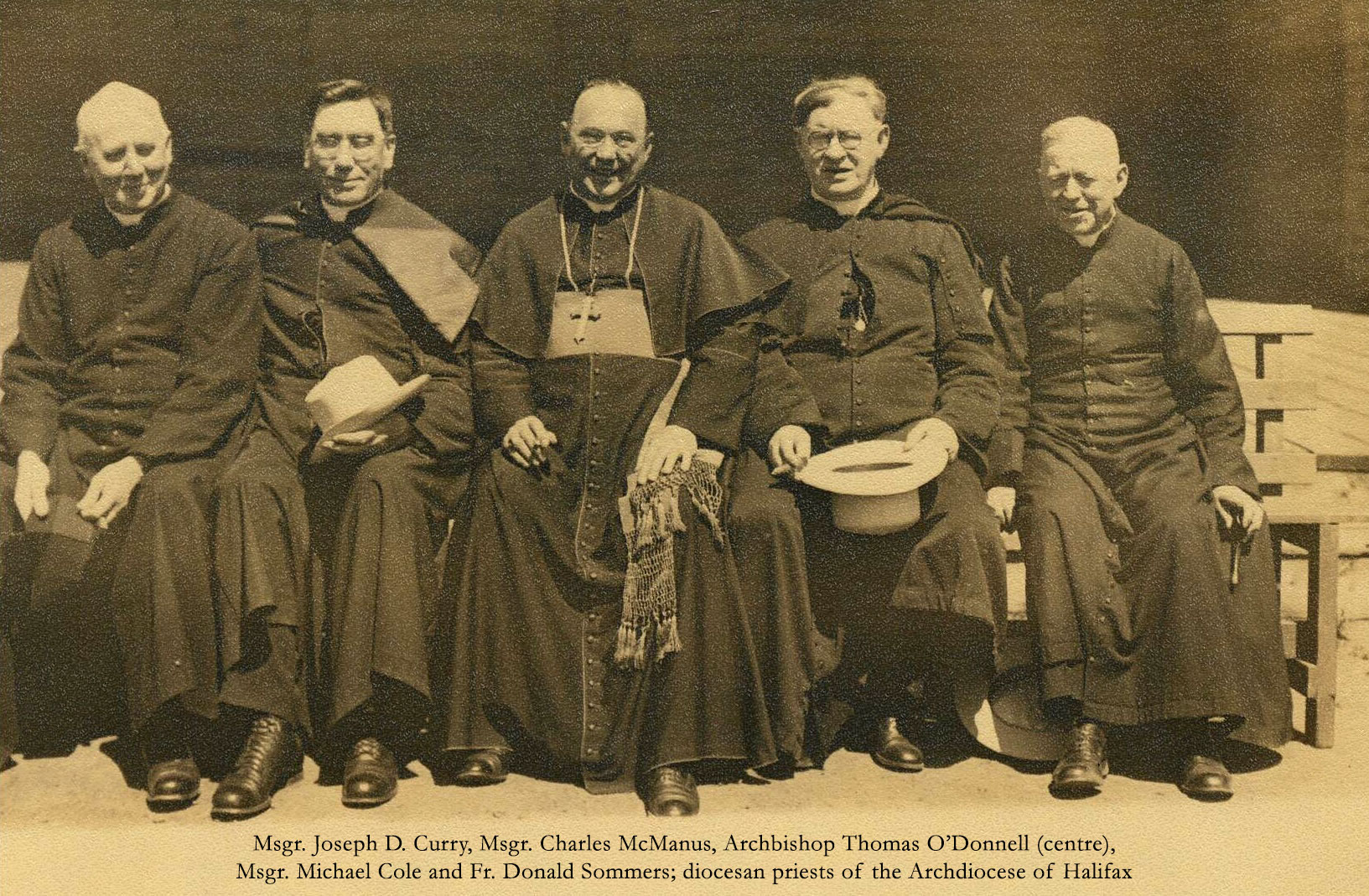
Unlike the Irish Christian Brothers, the Catholic Women’s League both nationally and locally received the respect and support of Archbishop O’Donnell. However, just as the Irish Christian Brothers were once warned, His Grace forbid any modern dancing at their events. The Archbishop was invited and attended many CWL meetings and ceremonies over his episcopate. He was the keynote speaker on a few occasions at the annual Diocesan CWL meetings. In 1933 the Halifax branch of the CWL asked the Archbishop to speak at the national convention in Quebec City but he was regretfully unable to attend. He sometimes wrote pamphlets for the CWL as well. The organization was so pleased by his unwavering support that they bestowed Archbishop O’Donnell with a donation of $300 dollars to purchase new furniture for his residence on Coburg Rd.
His Grace was among the first Canadian Prelates to speak out against the Soviet Regime who were violently persecuting Christians in the 1920s and 1930s through anti-God legislation. This legislation included outlawing the public practice of the Christian faith, the distribution and possession of Christian works and books, and declaring Atheism the religion of the State. The punishments varied from sentences to labour camps, imprisonment, and even death. Thousands of priests, bishops, and believers were killed and suppressed in Russia at the time. This prompted Archbishop O’Donnell to become a strong anti-communist activist. During his episcopate, he released a circular letter that strongly condemned the atheistic ideology and called for the people of Halifax to pray for the persecuted religious in the Soviet Union. He also implored the faithful of the Archdiocese to donate to the suffering Catholics of the Soviet Union. The suffering of the Soviet people weighed heavily on the Archbishop’s heart. He often thought of the children who were deprived of the charity the church had so long provided in the region, through education, shelter, and food.
One of the Archbishop’s most notable achievements during his episcopate was the development of his new official residence in the North-West Arm of Halifax. The home, built by MacDonald’s Construction Company, was completed in November of 1931. The Catholic Gazette called the residence, “the most prestigious of any Bishop in Canada.” The home served as a replacement for the past residence on Dresden Row where the two previous Bishop’s had lived.
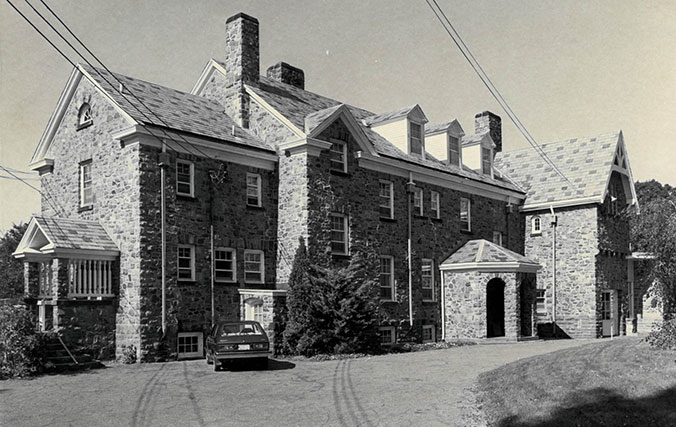
Other accomplishments In the course of the Archbishop’s episcopate included the building of eight new parish churches in Halifax. He also laid the cornerstone for the new location of the Halifax Infirmary in 1933 and oversaw the establishment of several new rectories and three new schools.
On New Year's Day 1936 Archbishop O’Donnell wrote a very prophetic piece in The Halifax Herald, which read as follows:
“The deceptive length of life binds us. We, in our presumptuous moments console ourselves with the thought and weak resolution: There is plenty of time; after a while I'll straighten out accounts and make all well between my God and myself. How often, however, are we destroyed by this presumption, by this foolish expectation of time over which we have no control? We know not the day nor the hour when we shall be hurried before the tribunal of unerring justice - yes, at that very hour least expected, 'At the hour you think not, the Son of Man will come'."
He passed away after suffering a severe stroke on the morning of January 13, 1936. He was 61 years old and just shy of serving as Archbishop of Halifax for five years. A Requiem Mass was held at St. Mary’s Cathedral for the Archbishop on January 17. Many distinguished visiting prelates attended his funeral including Archbishop Andrea Cassulo, and the future Cardinal Archbishop of Toronto James Charles McGuigan.
References
Archbishop Thomas O’Donnell Fonds. “Catholic Women’s League.” Archdiocese of Halifax-Yarmouth. (Volume I, 72-91A). 1929-1945.
Archdiocese of Halifax-Yarmouth. “Photo Fonds.” Files 2(19A), File 3(30) and 17(21) Archdiocese of Halifax-Yarmouth Archives.
Cheney, David M. “Archbishop Thomas O’Donnell.” Catholic Hierarchy. February 25th, 2024. https://www.catholic-hierarchy.org/bishop/bodont.html
Hanington, J. Brian. Every Popish Person: The Story of Roman Catholicism in Nova Scotia and the Church of Halifax, 1604-1984. Archdiocese of Halifax, 1984, pg. 168-195.
O’Donnell, Archbishop Thomas. Death and Funeral Fonds, Vol. V. 1899-1936. Archdiocese of Halifax-Yarmouth Archives.
O’Donnell, Thomas. Coadjutor Archbishop of the Archdiocese of Halifax. “On Behalf of the Persecuted People of Russia. Circular Letter of the Archdiocese of Halifax. March 7th, 1930, pg. 1-9. Archdiocese of Halifax-Yarmouth Archives.
The Catholic Gazette. “Archbishops New Residence at N.W. Arm is Completed: Halifax Firms Do Work.” The Catholic Gazette. October 29th, 1931. Archdiocese of Halifax-Yarmouth Archives.
Archives Contact
Sharon Riel
Archivist - Halifax Office
Archdiocese of Halifax - Yarmouth
(902) 429-9800 ext 314
